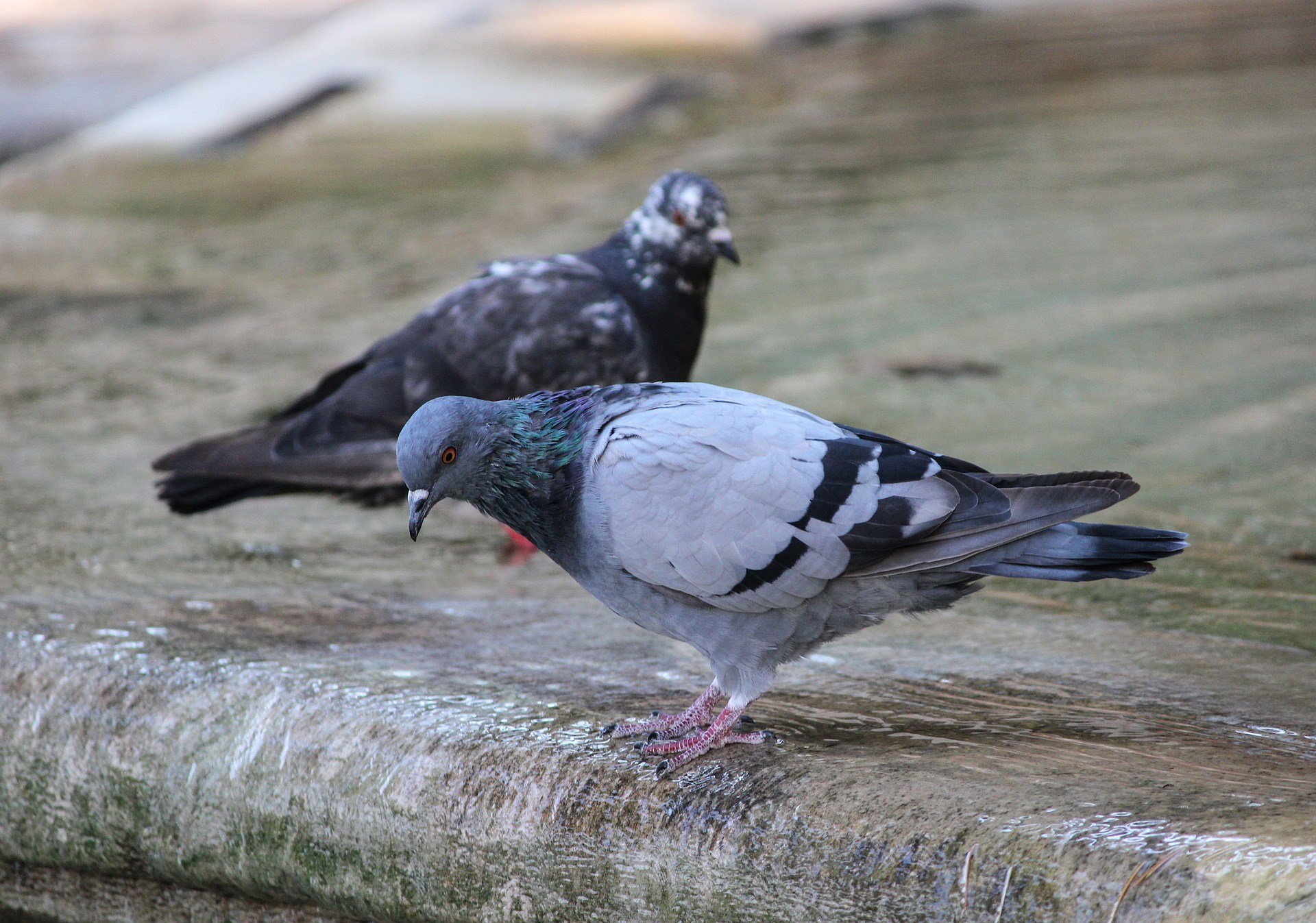
Susan Delaney Spear is a runner: a hurdler, a racer, a long-distancer, and—ultimately—a messenger. Her book Beyond All Bearing (Resource Publications, 2017) says a prayer, then starts running until the finish. It is as athletic as one would expect the best, self-abnegating, long-distance couriers to be. In “Chores,” the second poem in the collection, the speaker says, “I ran down Belmar Street to cross the highway,” and so early on the reader is prepared for a marathon, one that becomes more and more pounding.
"The author’s range is considerable, her versatility evidenced not only in subject and tone, but also in her forms."
Spear, moreover, is a runner of measured pace, who knows her “feet” well. She is pointedly aware not only of herself, but also of her onlookers beyond the barricades. On the heels of the book’s opening poem, an invocation, comes a finely-executed, nostalgic and precise, first-person narrative, from the point of view of a young person who is running out to buy a pack of cigarettes for a parent. Throughout the pages, there is much terminology of the one on the run. Beautifully-personified teardrops sprint down a face, travel being a recurring theme: a wild traveler; a swift, child pedestrian stopping traffic; a passenger racing through an airport with luggage; a jogger in Nike shoes, passing a modern-day “Moses.” The end of travel, in fact, becomes symbolic in the collection of the onset of grief, as in the poem, “Foreshadows”:
I'll wait here in the dark.
My traveling days are done.
Tonight the sky is stark.
There'll be no midnight sun.
Grief's countenance is stern,
Not easily unlearned.
“Sun” seems a heartrending double entendre and pun on “son,” foreshadowing the death and absence of a child, who will be revealed toward the collection’s close.
The concept of grace not only opens the book through devotional invocations to the Muse and to the Eucharist, then to the Holy Ghost:
Come, Holy
Ghost, hum
in common places
Prove to me
your extraord-
inary graces.
It also makes repeated appearances, and as a favorite for rhyme pairs—“trace/grace; places/graces”—as well as internal rhyme where all three coexist. Elsewhere, grace will arise with “embrace.” This might seem a minor, miniscule detail, yet it is illustrative of one masterful method by which Spear achieves and maintains an authentic, consistent voice via the book’s diverse subjects and forms.
Powerful humanitarian currents carry the reading, exemplified by the notable sestina, “One Narrow Row,” wherein an American woman envisions herself among suffering Chinese children, and “prays for a purpose in this world.” The poem is remarkably vivid, for all its purported status as being the vision of one person alone:
where air hangs like ice and people dream of rice,
where expressionless faces gaze through windows
obscured by ash....
where flesh clings tightly onto thin-boned children,
where bent women cluck, counting grains of rice,
where old men squat, smoke, tell jokes, and wait...
The welfare of children looms large throughout the book, from the moving poems about a child lost to suicide, to foreign waifs, and even in an ode to twins, which encourages hope in its final line: “Hold on.” One memorable poem goes so far as to attempt to halt the celebration of Easter, the holiest day in the global Christian calendar, because of the death of a single child. Sarah of The Old Testament, who was promised a child in old age, speaks in a brief monologue entitled, “Laughter.” The poem is significant in that it represents a “tent-pole” for the entire collection, in which laughter—occurring repeatedly—is sardonic, wicked, or skeptical, rather than joyous.
Still, the book is predominantly earnest in tone, though certainly amusing irony and a bit of wicked poetic justice are not lacking. “Pricey Recipe,” through clever word play, hints at an infidelity which occurs despite the faithful woman who is trying to palate-please her partner. And the rhyming, metrical quatrains of another poem, “Undercut,” chronicle solemn poetic justice:
When her husband's blood filled up with cancer,
The doctors dredged the marrow from his bones.
As months dragged on they waited, but no answer.
Starved for life, she left him on his own.
She met a man who matched her lust for life.
They built a house where grief would not belong.
Together they beat out the dust of death,
While her ailing husband's blood grew strong.
Cancer's shadow held its breath and stalked,
And when the time was ripe, it got her gut.
Two men rubbed shoulders at her grave and balked
To see her life, at forty, undercut.
The woman coldly abandons a terminally ill patient. Spear, also with coldness, personifies this terminal illness, representing it as a “stalker” who pursues justice. Having abandoned her husband, who later “grew strong,” the woman dies of cancer herself. The poet’s gavel, darkly ironic, dispenses death to the abandoner, and spares her doubly-victimized husband.
Like the iambic pentameter and end rhyme, assonance (“gut/rubbed/cut”) lends coherence and memorability to the final stanza, while alliteration (“shadow/shoulders” and “got/gut/grave”) powerfully reinforces them. Likewise, those same sonic devices earlier on—in “dredged/dragged,” “met/man/matched,” “grief/grew”—strengthen the preceding stanzas, which are a nod (using something known as “dramatic irony”) at the fair recompense.
“Outliers” is a brief series of skillful sonnets written in the voices of Biblical women. Wry in tone overall, it merits especial mention for its clever double entendre and word play such as that in Tamar’s sonnet, which speaks of Judah, “…his pride unraveled at the trick I’d turned.”
Spear’s verbal “pop” is periodically as electric as that traveling down an electrical line. The poem “Aftermath of a Miracle” begins, “Last week’s wake is this week’s merry-making…” It’s the sort of startling sound-and-effect which leads the reader to stop, visit, and reset the fuse, as it were—then revisit. Spear’s vision can be highly original. In one speaker’s garden, for instance, purple pansies become soldiers.
Flight, as well as running, recurs throughout the book, whether in the form of fireflies or the sprouting of wings. “Live Life Away” is one such example, where the author also matches theme with sound, successfully employing a triplet meter to keep the poem aloft:
I enter the kitchen where children who chatter
draw pictures with crayons. Their dim voices scatter.
These two lines are characteristic of the poet’s lively musicality. Notice the repetitions of “ch”—"kitchen/children/chatter”—and that all three words have two syllables, the first two words being assonantal.
The author’s range is considerable, her versatility evidenced not only in subject and tone, but also in her forms. She moves without snag from blank verse to the short line and to the villanelle, the last of these containing very memorable, quotable phrases such as “…at summer’s end wait second chances” (from the poem “Summer’s End”).
The playfulness, invention, and “façade” of the first eighty-five percent of the book are necessary to bolster the reader for what occurs at the poem, “Honeysuckle.” Here, the collection takes on a gravity and earnestness unmatched by the previous poems. We read that a search party of sheriffs, accompanied by family members alongside a highway
...saw all
that they were trained to see:
a thin young man,
belt around his neck
chin down
knees planted in the ground
face marred by insects
body bloated
sodden by the summer rain
no ligature marks
no evidence of struggle
no broken bones
no foul play.
The narrator, the suicide’s mother, says
She saw his body
perfectly,
as a mother sees...
The contrast here between reality and fantasy, the cracked truth, increases the literary tension profoundly, earning its power without sentimentality. The poem ends in a devastating flashback to the man’s youth, when the mother at the same instant sees her son on his knees, praying with gratitude. The mother stumbles into the night, the reader saved from complete emotional pillage only by this stanza’s escape into the total romanticism from an image of “the holy scent of honeysuckle.”
A subtle, internal symbolism and personal mythology follow this poem. Two pages later, for example, in “Actuary Tables,” the reader encounters what is presumably also written with the above suicide in mind:
Facts were not what knocked her to her knees,
Not what sucked the air out of her lungs.
The knees and the suffocation come across as strong identification with the dead, self-destroyed son of the speaker in “Honeysuckle.” Again, this is done with an ascetic, light touch—indeed, almost too light—but one gets the idea that these speakers are holding back out of a sense of compassion and empathy for the reader. It is seemingly a strong sense of that “grace” which appeared in the very first poem, whose literal “echoes,” in place, face, trace, embrace, are experts regarding what pathos they are entitled by virtue of their tragedy—and choose not to indulge.

